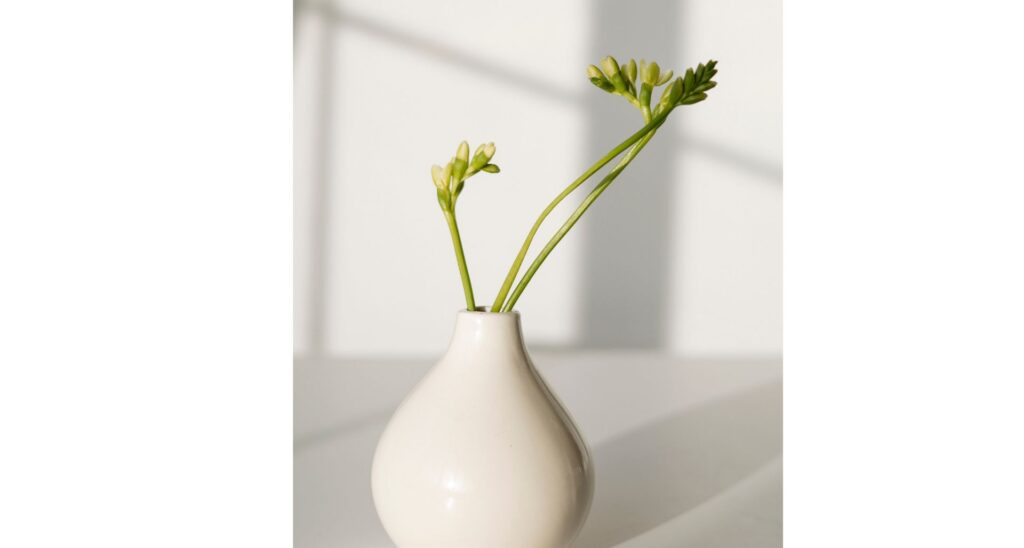
Ceramic tiles are crafted from natural clay, which is shaped, glazed, and kiln-fired at high temperatures. The result is a hard, durable, and water-resistant surface suitable for floors, walls, and outdoor spaces.
There are two main types of ceramic tiles:
Glazed Ceramic Tiles: Coated with a protective layer, offering various colors, patterns, and textures.
Unglazed Ceramic Tiles: More natural-looking and slip-resistant, making them ideal for outdoor areas.
1) In today’s market, ceramic tiles are preferred for their versatility and performance in both aesthetic and functional applications.
2) Durability and Longevity
One of the standout features of ceramic tiles is their exceptional durability. Compared to other flooring materials, they offer:
High resistance to scratches and stains, making them perfect for high-traffic areas.
Longevity: With proper installation and maintenance, ceramic tiles can last for 20-30 years or more.
Fire and heat resistance, ensuring they remain intact even in extreme conditions.
In commercial settings like retail stores, hotels, and restaurants, ceramic tiles withstand heavy foot traffic without fading or deteriorating.
3) Water and Moisture Resistance
Ceramic tiles are naturally water-resistant, making them an excellent choice for moisture-prone areas:
Bathrooms and kitchens: Their non-porous surface prevents water absorption and mold growth.
Outdoor areas: Slip-resistant ceramic tiles are ideal for patios, balconies, and pool decks.
Spill protection: Ceramic tiles are resistant to stains and easy to clean, making them perfect for areas prone to spills.
4) Eco-friendly and Sustainable
In today’s environmentally conscious market, ceramic tiles offer sustainable benefits, making them a preferred choice for eco-friendly building projects:
Made from natural materials: Clay, sand, and water.
Recyclable and reusable: Contributes to sustainable construction practices.
Low VOC emissions: Promotes better indoor air quality, reducing health risks.
Energy-efficient production: Many manufacturers incorporate recycled content in the tile-making process.
Why It Matters:
As green building standards gain importance, ceramic tiles are increasingly chosen by environmentally conscious consumers and builders.
5)Design Versatility and Aesthetic Appeal
Ceramic tiles offer endless design possibilities, making them ideal for various aesthetic preferences:
Wide range of colors and patterns: From minimalist white tiles to bold, patterned ones.
Realistic wood and stone finishes: Digital printing technology allows ceramic tiles to mimic natural materials.
Customizable designs: Personalized tile patterns, mosaics, and decorative finishes cater to individual tastes.
Trending Designs: Large-format tiles with fewer grout lines for a seamless look.
Matte-finish ceramic tiles for contemporary interiors.
Terrazzo-inspired ceramic tiles for modern decor.
6) Cost-effectiveness
Ceramic tiles provide excellent value for money:
Affordable price range: Compared to natural stone or hardwood, ceramic tiles are budget-friendly.
Low maintenance costs: Unlike wooden flooring, ceramic tiles require minimal upkeep.
Energy efficiency: Their thermal properties contribute to maintaining indoor temperature, reducing heating and cooling costs.
Example:
For budget-conscious homeowners, ceramic tiles offer a stylish yet affordable flooring solution, making them a top choice in the market.
7) Easy Installation and Maintenance
Ceramic tiles are known for their ease of installation and low-maintenance requirements:
Efficient installation: Can be installed over existing floors, reducing labor costs.
Low maintenance: Regular sweeping and mopping keep ceramic tiles looking new.
Repair-friendly: Damaged tiles can be easily replaced without disturbing the entire floor.
For DIY enthusiasts, ceramic tiles are relatively easy to install, making them a popular choice for home renovation projects.
8) Hygienic and Allergen-Free
Ceramic tiles promote better hygiene and indoor air quality:
Non-porous surface: Resists bacteria, mold, and mildew growth.
Hypoallergenic properties: Unlike carpets, ceramic tiles do not trap allergens.
Easy to disinfect: Ideal for healthcare facilities and commercial kitchens.
Why It Matters : Post-pandemic, consumers prioritize hygiene, making ceramic tiles a practical and safe flooring option.
9) Temperature Regulation
Ceramic tiles offer excellent thermal properties, making them suitable for all climates:
Cool during summer: Helps maintain a comfortable indoor temperature.
Compatible with radiant heating: In colder regions, ceramic tiles work efficiently with underfloor heating systems.
10) Versatility in Applications
Ceramic tiles are highly versatile, suitable for a variety of applications:
Flooring: Ideal for living rooms, kitchens, and commercial spaces.
Wall cladding: Adds aesthetic appeal to bathrooms and kitchens.
Outdoor spaces: Weather-resistant ceramic tiles are perfect for patios, terraces, and walkways.
Backsplashes and accent walls: Decorative ceramic tiles enhance visual appeal.
Market Trend: In modern interior design, ceramic tiles are used creatively on walls, ceilings, and even furniture surfaces.
11) Technological Advancements in Ceramic Tiles
The ceramic tile industry has embraced cutting-edge technology:
Digital printing: Creates realistic wood, stone, and marble effects.
Rectified edges: Allows seamless and precise installation.
Anti-slip and anti-bacterial coatings: Improved safety and hygiene features.
Why It Matters:
These advancements make ceramic tiles more functional, stylish, and relevant in the current market.
12) Increasing Demand in Commercial Spaces
Ceramic tiles are widely used in commercial and public spaces due to their durability and low maintenance:
Retail stores: Withstand heavy foot traffic.
Hotels and restaurants: Offer aesthetic appeal and easy maintenance.
Healthcare facilities: Provide a hygienic and safe surface solution.
Current Trend : Large-format ceramic tiles are in demand for creating a seamless look in commercial spaces.
13) Rising Popularity of Large-format Tiles
Large-format ceramic tiles are trending due to their:
Minimal grout lines: Enhance the aesthetic appeal.
Faster installation: Covers more surface area, reducing labor costs.
Modern look: Ideal for contemporary interiors.
Conclusion:
Ceramic tiles continue to dominate the current market due to their durability, cost-effectiveness, and versatility. Their water resistance, design flexibility, and low maintenance make them a practical and stylish solution for both residential and commercial spaces. With technological advancements and eco-friendly production methods, ceramic tiles are set to remain a top choice for years to come.
Key Takeaway:
If you are planning a new project or a home renovation, choosing ceramic tiles offers a stylish, durable, and budget-friendly solution that stands the test of time.